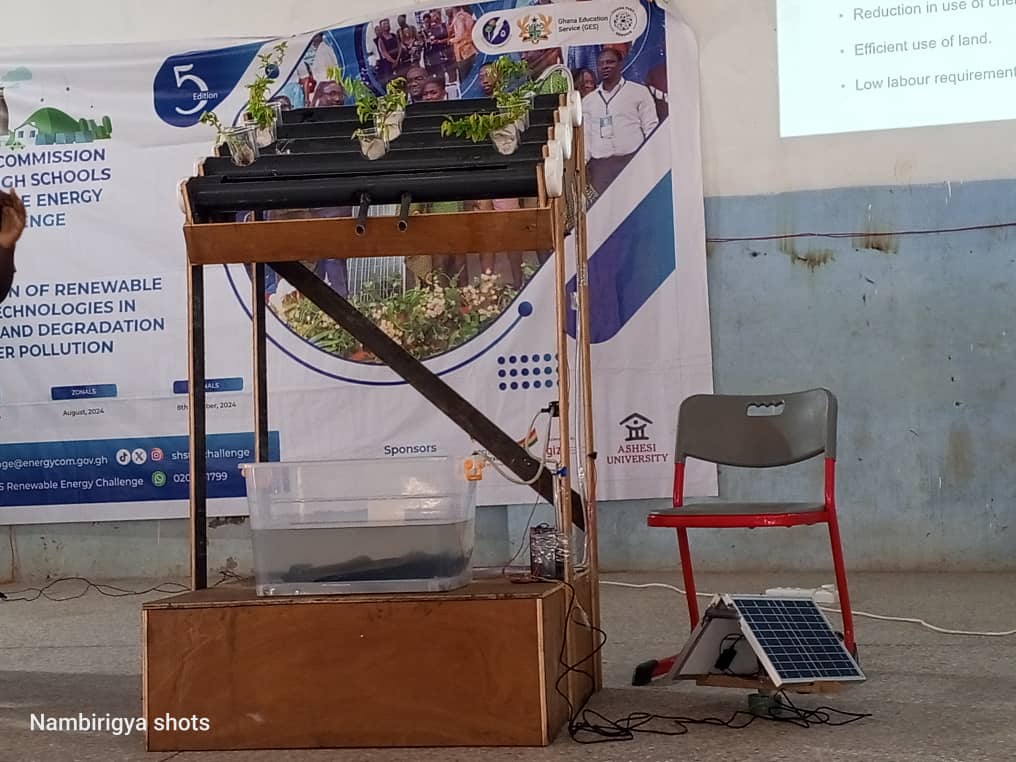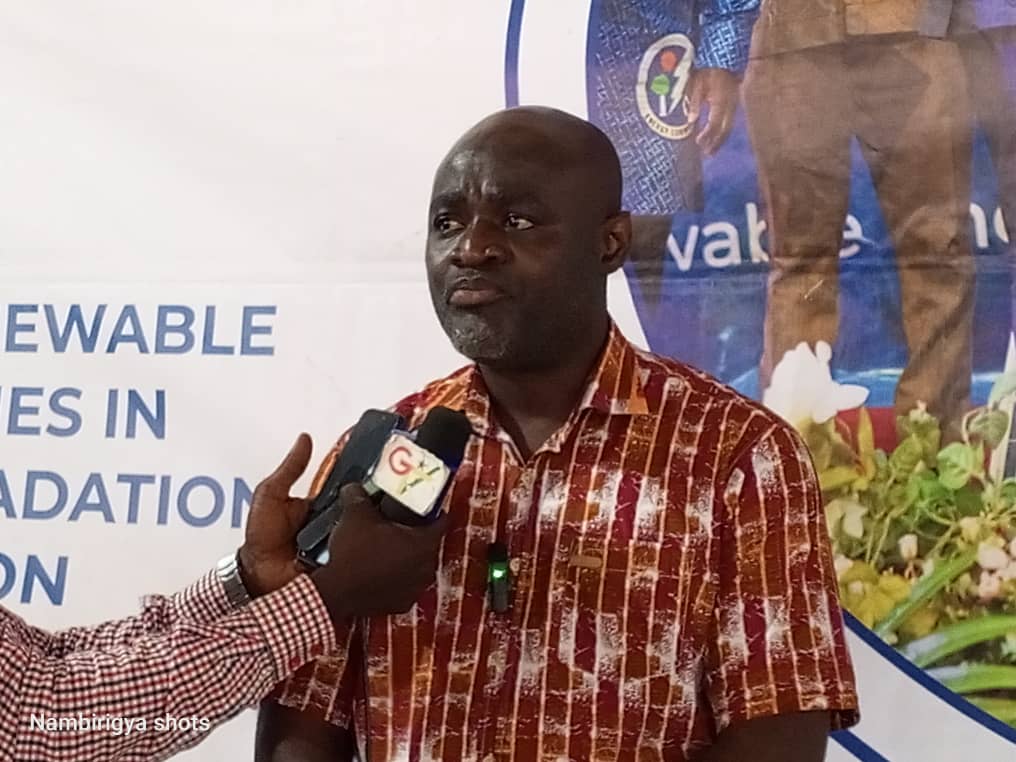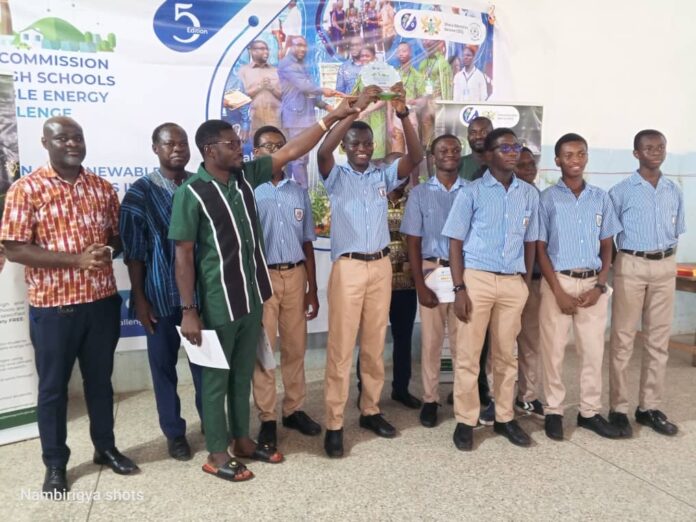Notre Dame Minor Seminary, in the Kassena Nankana Municipality of the Upper East Region on Thursday July 4, 2024, emerged victorious in the regional contest of the 5th Edition of the Energy Commission Senior High Schools Renewable Energy Challenge.
The regional event which was held at the Bolgatanga Senior High School (BIGBOSS) had five schools participating including Notre Dame Minor Seminary, Bolgatanga Senior High School, Our Lady of Lourdes Girls’ SHS Bolgatanga Girls’ SHS and Navrongo Technical Institute.
After taking turns to present their various projects, Notre Dame was adjudged winner with 71.7 points, with BIGBOSS placing second after getting 67 points.
Third position went to OLL with 64.7 points while Bolga Girls and Navrongo Technical Institute placed 4th and 5th with 63 and 50.7 points respectively.
This year’s challenge held under the theme “Application of Renewable Energy Technologies in Solving land degradation and water pollution” had the students come up with projects that sort to prevent land degradation and water pollution.
Students of Notre Dame Minor Seminary implemented a project in line with the aquaponics system.
Concerns about traditional agriculture’s impact on land, water, and resources have led to advocacy for sustainable farming methods.
Aquaponics is seen as a highly efficient farming solution that addresses these multiple farming challenges. By using less water compared to conventional farming, reducing the need for synthetic fertilizers, and minimizing waste, aquaponics presents greater prospects for producing food without damaging our environment.

Aquaponics is a unique farming method that combines aquaculture – the practice of raising fish – with hydroponics – the method of growing plants in a soilless environment.
In an aquaponics system, fish and plants are cultivated together in a symbiotic environment where they mutually benefit from each other’s presence. The fish produce waste, which is converted by beneficial bacteria into nutrients that plants can absorb.
In turn, the plants filter and purify the water, creating a healthy environment for the fish.
This closed-loop system is highly efficient, using significantly less water than traditional farming methods and eliminating the need for chemical fertilizers.
With this, the students designed solar panels that charges a battery which then helps in the entire process with constant energy supply.
The school was represented by Abesiba Marcellinus Agambila, Nchobuno Kevin Amisom and Dramani Benedict Iddi.
The Notre Dame’s students explained that their project is eco-friendly and will contribute to a safer ecosystem.
“This one does not release carbon emissions to the environment. So it’s very eco-friendly and it’s what we need now,” one of them explained.
They also pledged to make the region proud both at the Zonal and National Competition.
“Upper East, we will not disappoint you. We are going to take to the nationals , we are going to make Upper East known to the rest of Ghana,” another added.
Mr. Julius Nkansah-Nyako, Senior Manager, Renewable Energy Energy Regulation and the Project Coordinator, explained that the increasing destruction done to the environment is influenced the theme of this year’s industry.

He says the challenge is to connect the students to the real world to trigger their program solving skills.
“One advantage of this challenge is trying to break the gap between what our students are taught in the classrooms and what happens in the industry. So we give them such a challenges for them to brainstorm as a team in order to come out with innovative solutions”.
He said the challenge has been very competitive and has brought out the innovative skills of the students.




